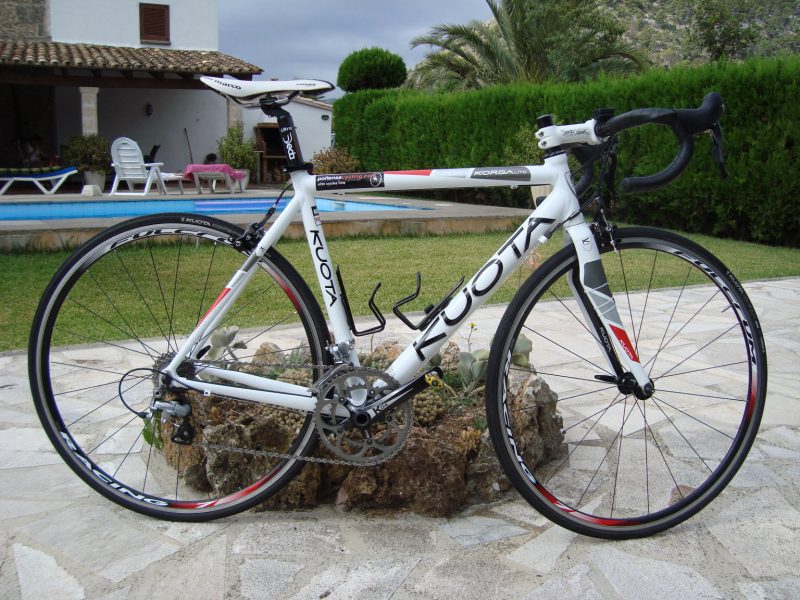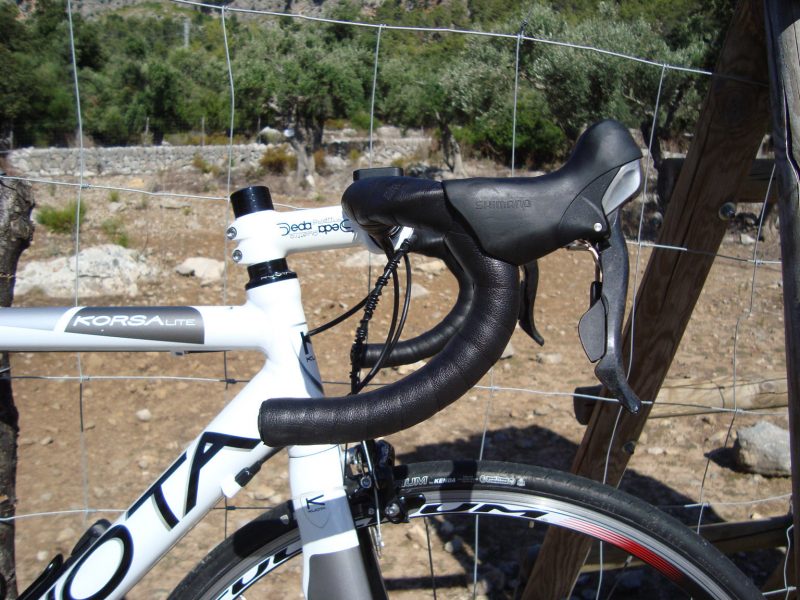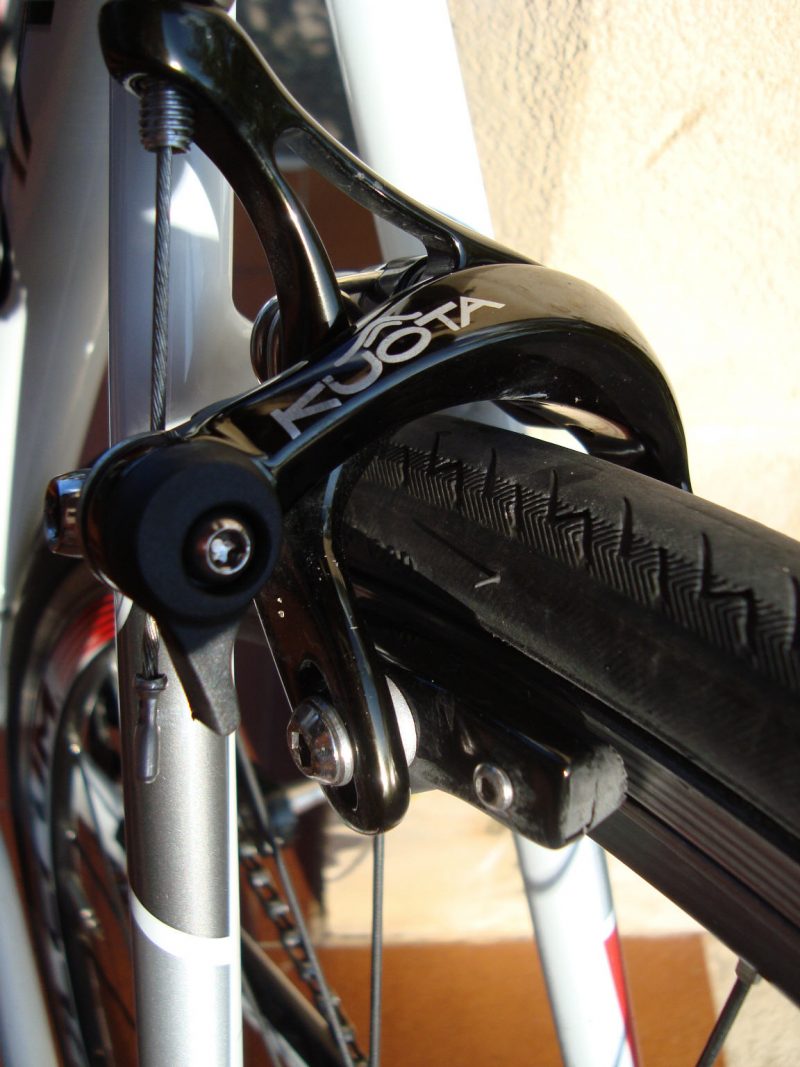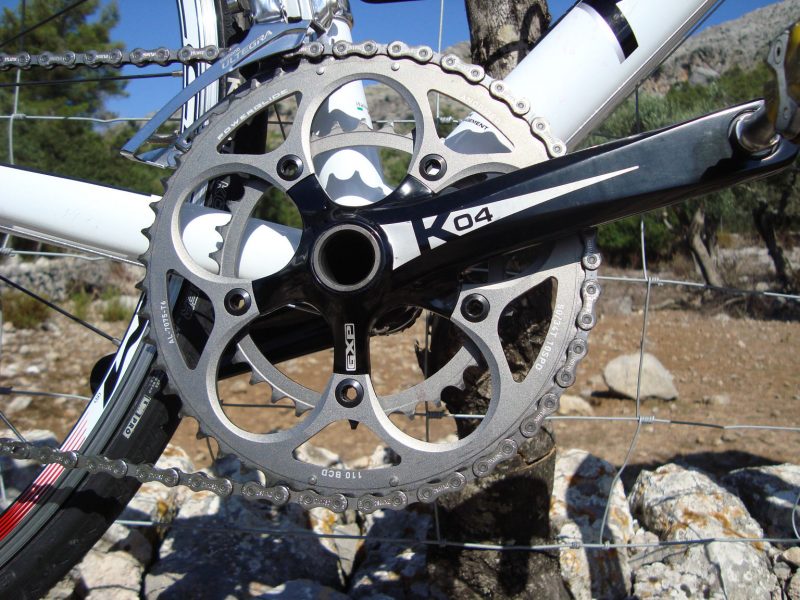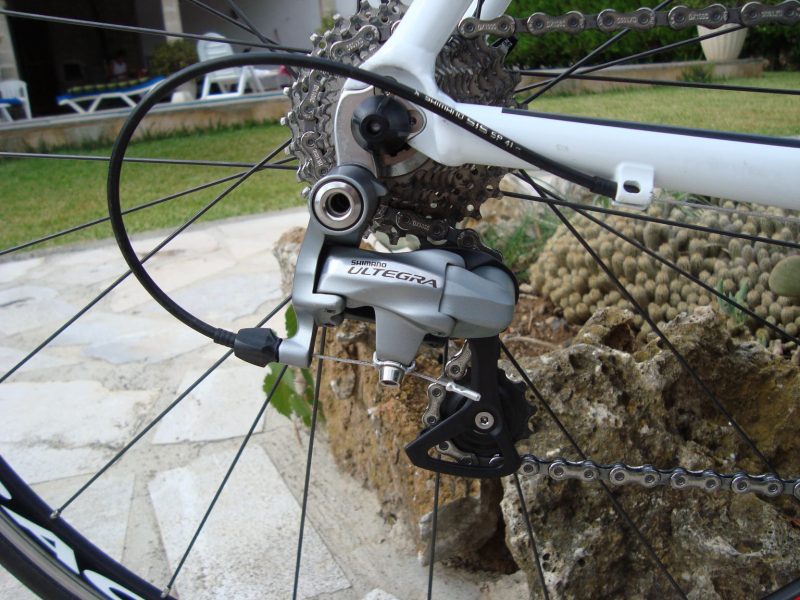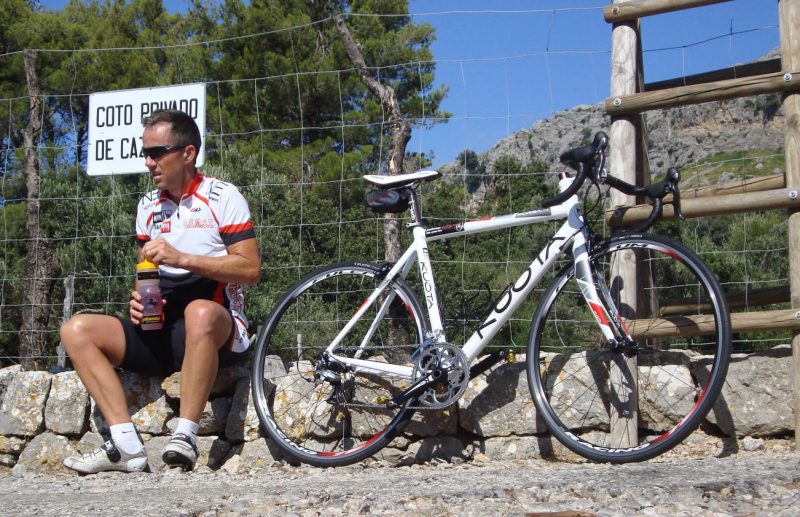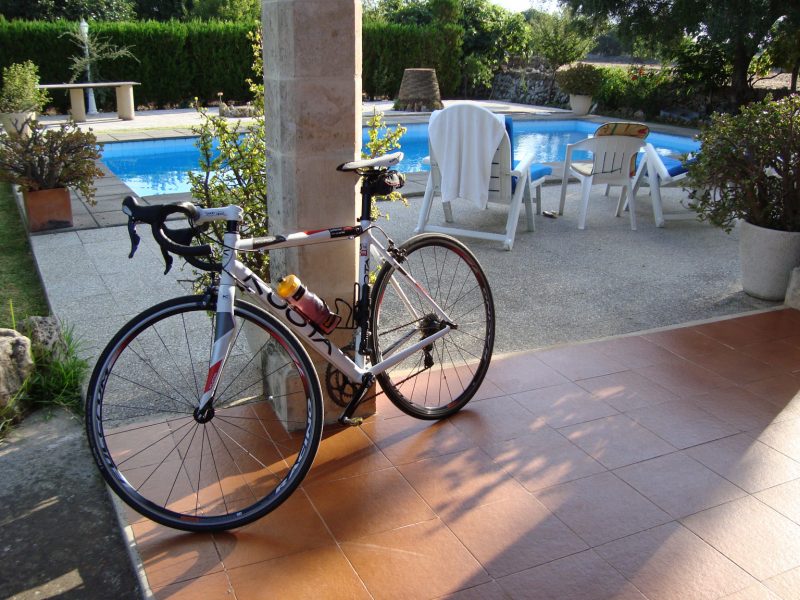If you’re heading to Mallorca on holiday or for a training camp it makes a lot of sense to hire a bike over there rather than take your own machine to the island.
I recently spent a couple of weeks in Pollença in the north east of Mallorca, on a family holiday – and for simplicity I decided to do just that.
Cycle hire in Mallorca typically costs just a little more than the airline baggage charges you’d incur to take your own bike on a return flight, and you don’t need to worry about your bike getting damaged (or worse, delayed or lost) in transit – you simply collect your pre-ordered bike once you’ve arrived (or have it delivered to your hotel), attach your pedals and you’re all set.
I used Pollensa Cycle Hire (PCH) for my bike hire, as they’re based in the town I was staying, and the operation is hosted by the well-respected local bike shop, Meam Si Torn, owned and run by expert mechanic and pretty handy rider himself, Mateu Cerdá .
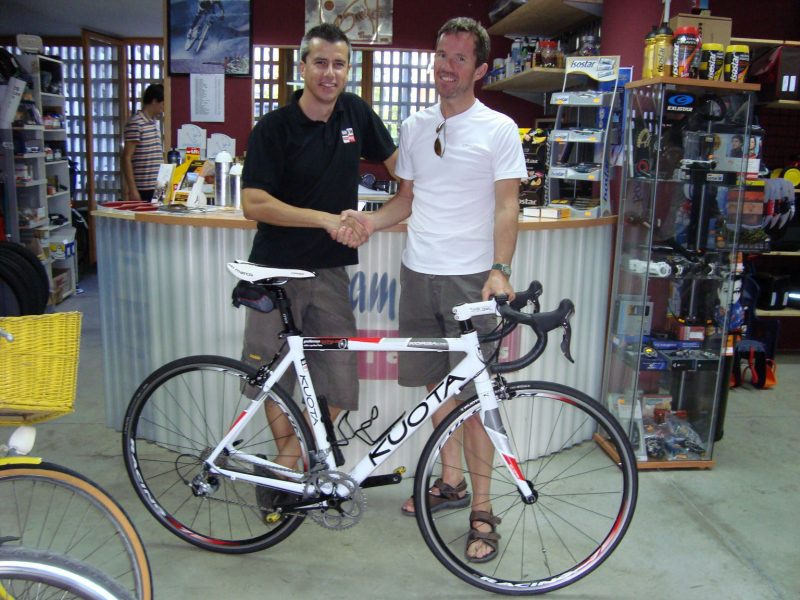
* * *
Cycle hire in Mallorca – Booking Your Bike
It’s very straight forward to arrange your hire bike; on the company’s website, click on the ‘Booking’ section, and enter the dates you require a bike, then select the size you need and whether or not you want to hire pedals – if you don’t bring your own, you can rent a pair of Look KEOs or Shimano SPDs for 10 euros for the entire rental period.
There’s information on the site about frame size and geometry, to help you select the best size for you.
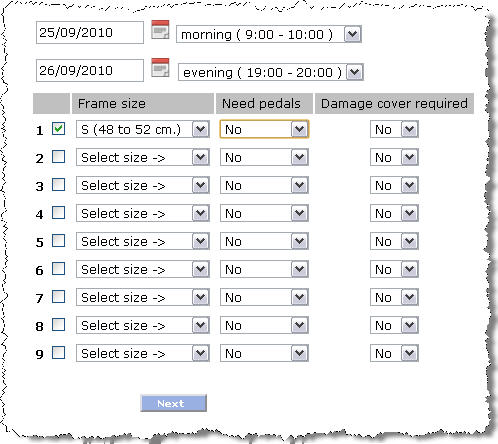
You can also elect to take up their bike insurance, which doesn’t include theft of the bike, but does cover damage caused by potholes or crashes, and at 2 euros per day probably makes good sense to take, given your plans to race your pals down the descent of Puig Major.
You can reserve up to nine bikes at one time using this mechanism, which is handy for groups or clubs making a block booking.
The next step is to input payment details, and whether you want the bike delivered to your hotel, and you’re done. You’ll get an email from Mateu confirming the details after that.
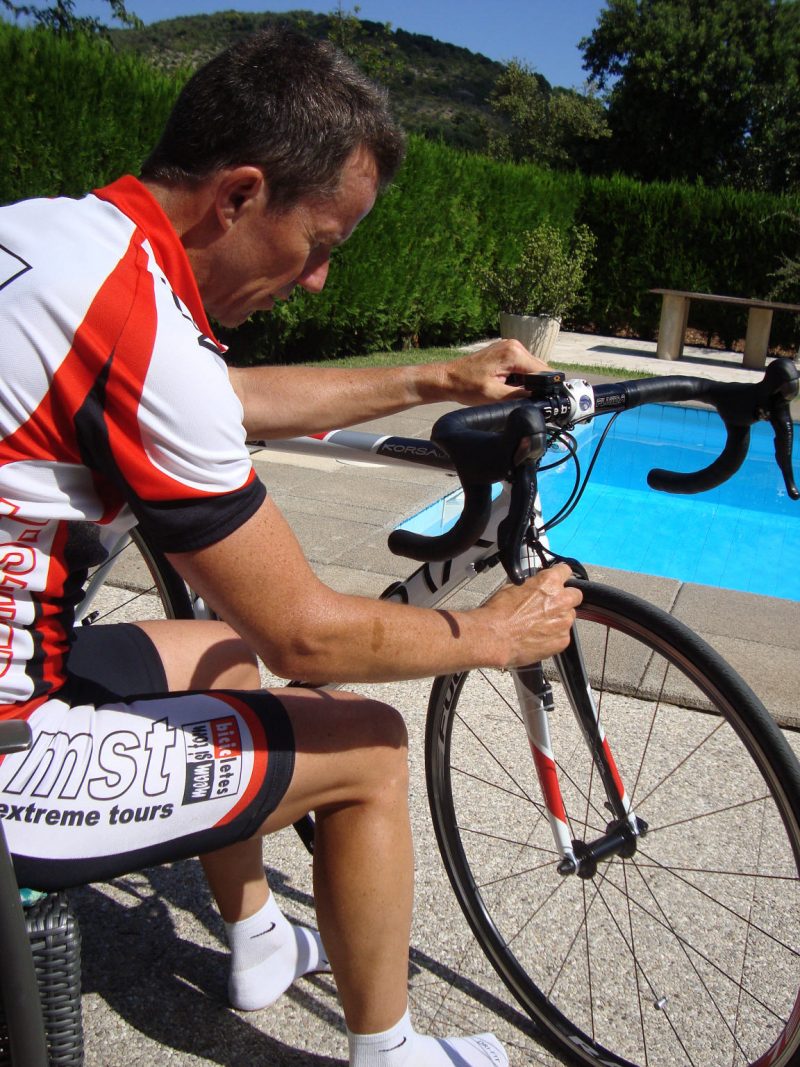
* * *
The Bike
My bike was one of the 25 in the current PCH fleet, all of them are the Kuota Korsa Lite Compact model with aluminium alloy triple butted frames and carbon bladed forks, but for those of you who need – or simply have to have – a carbon monocoque frame, the fleet is being expanded shortly and there will be an additional 20+ bikes, including Kuota’s carbon Kharma and Kebels to choose from.
Mateu will deliver bikes free of charge to Pollença, Puerto Pollença, Alcudia, Puerto de Alcudia and Playa de Muro, but as I was staying close to the shop I just collected the bike myself.
The bike was ready to go when I arrived at the agreed time, and Mateu had taken a first reckoning at a saddle height and stem height for me.
He quickly popped my Speedplays into the cranks – cleaning them first, and adding the correct grease to the threads, an attention to detail which impressed.
The bike was equipped with a computer, a saddle bag with tyre levers and a spare inner tube, a small pump, and two bottle cages.
The aluminium frame on the Korsa Lite was just fine for me, it’s very light – only 55 grams heavier than the carbon Kebel, and together with the carbon 1 1/8″ forks offered a surprisingly stable and lively ride.
I noticed this particularly when descending on fast roads, such as the famous one down to the cove at Sa Calobra, and also when hammering down the sweeping turns from Lluc Monastery towards Pollença.
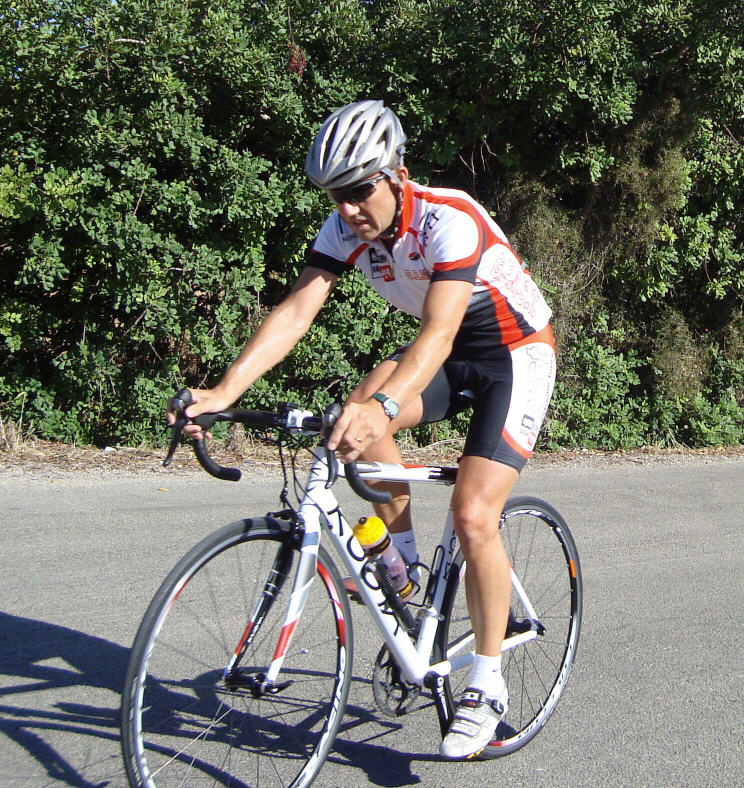
The bike cornered predictably, and was very receptive to even the slightest counter-steering input. It was noticeable during out-the-saddle efforts that the frame didn’t flex at all, and very quick accelerations were the result, uphill or away from road junctions.
Being used to a fairly low position on my own bike, I took advantage of the spare risers on the Kuota’s fork stem, and lowered the white Deda Quattro 12cm stem height about an inch, and together with setting the saddle further back on the Deda Ultra carbon (wrapped) seatpost, gave me a position very close to my usual arrangement at home.
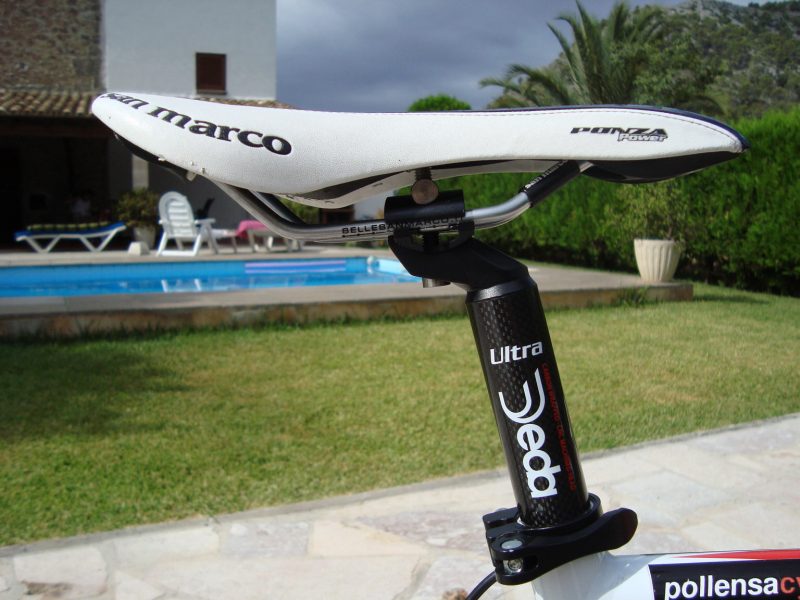
Speaking about the seatpost, when I couldn’t get the necessary setback on the original Kuota carbon post that came with the bike, Mateu swapped it out for the brand-new Deda one without hesitation, and was happy to carry out any other alterations or adjustments that I wanted.
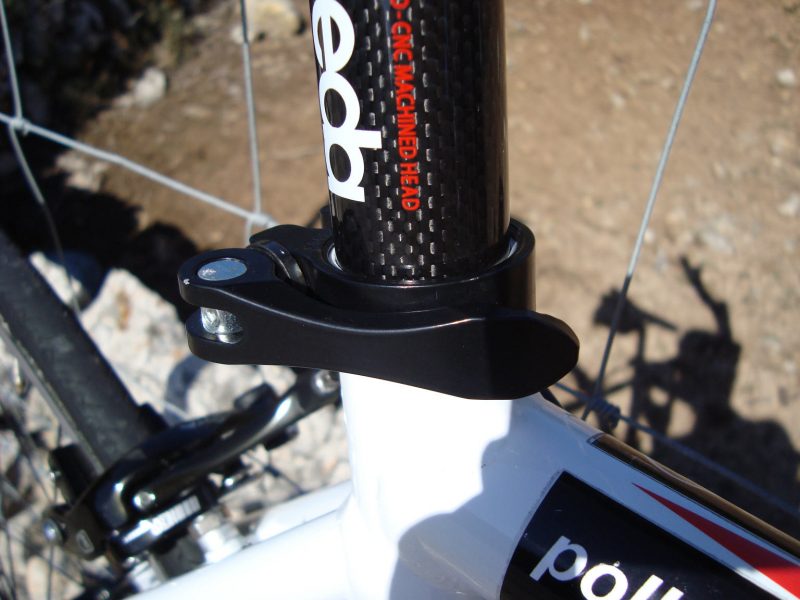
Mateu has fitted all the hire bikes with quick-release clamps for easy, tool-less seatpost height adjustment.
Shallow drop Deda Piega handlebars worked well with the Shimano levers, giving a nice, flat hand position when ‘on the hoods’.
The saddle, a white and black San Marco Ponza was fine – to be honest I didn’t really notice it, which is exactly what you want from a seat.
Braking on the bike was delivered by Shimano Ultegra STI levers pulling on Kuota-branded SRAM-derived calipers, which were more than up to the job; a tiny bit lacking in feedback, but certainly strong and progressive enough.
The chainset was again Kutoa’s version of an SRAM unit, the Compact CK04, with 50/34t chainrings, and combined with a selection of sprockets on the Shimano cassette from 12t to 25t, gave gearing small enough for all the climbs on the island.
I was very grateful for the low gearing when I blew up ‘majorly’ as Sean Kelly would have it, whilst climbing towards Orient one afternoon.
On occasion though, downhill or on the flat with a tailwind, I did think that I could have done with something bigger at the top end, but generally this isn’t going to be an issue on a bike that’s going to be used for training or touring.
Gear changes are done by Shimano Ultegra mechanisms, and these worked exactly as you’d expect – flawlessly.
In fact, being used to Ultegra shifting on my own bike, I thought that the setup on the Kuota was even crisper than normal – perhaps a combination of smaller chainrings and subsequent shorter chain.
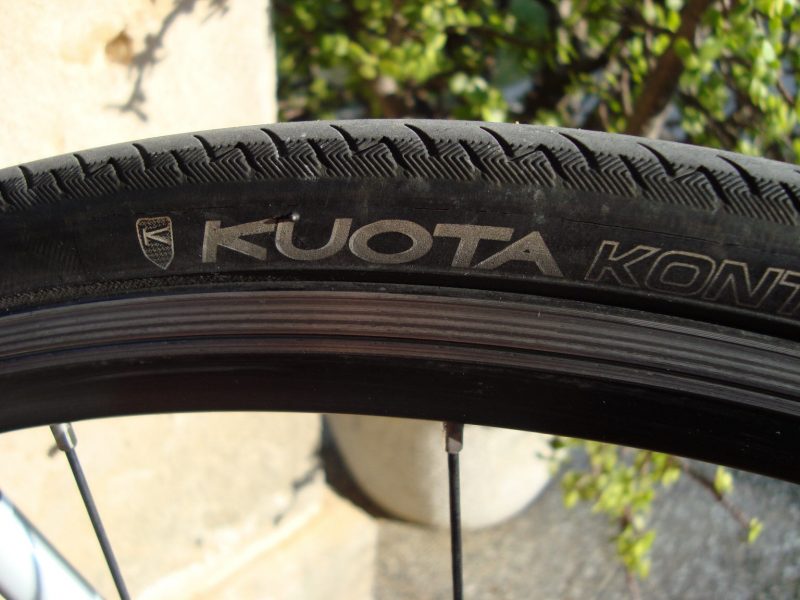
The Aluminium Fulcrum Racing rims on black Kuota (SRAM Rival-based) hubs provided training wheels sturdy enough for everything I could throw at them, and the Kuota Kriterium tyres (actually manufactured by Kenda) provided a comfortable ride and ample grip on the dry and dusty roads – just make sure you pump them up to the recommended pressures so that they sit on the rim correctly.
All in all, I’d recommend looking into hiring a bike this way, the experience of renting a bike rather than taking my own one with me was very worthwhile; not having to break my own bike up to put it into a box, avoiding the potential for my bike getting damaged in transit, and the fact that with a hire bike from PCH you have the support of an established and fully tooled-up bike shop, and willing, ‘nothing-is-too-much trouble’ mechanical support.
It’s written into in the terms and conditions of the hire that you hand the bike back in the same condition that you receive it, but Mateu gave me a good-natured telling-off for cleaning my Kuota so thoroughly before he got it back, informing me that cleaning and checking the bikes carefully after each hire actually allows him to check out all the components for wear and potential problems.
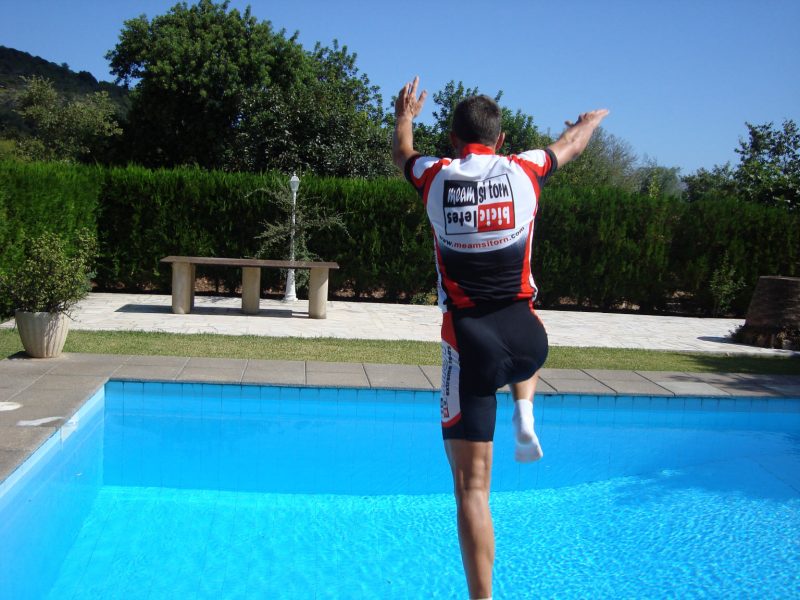
For more information or to book a bike for your own trip to Mallorca, have a look at PollensaCycling.com.


